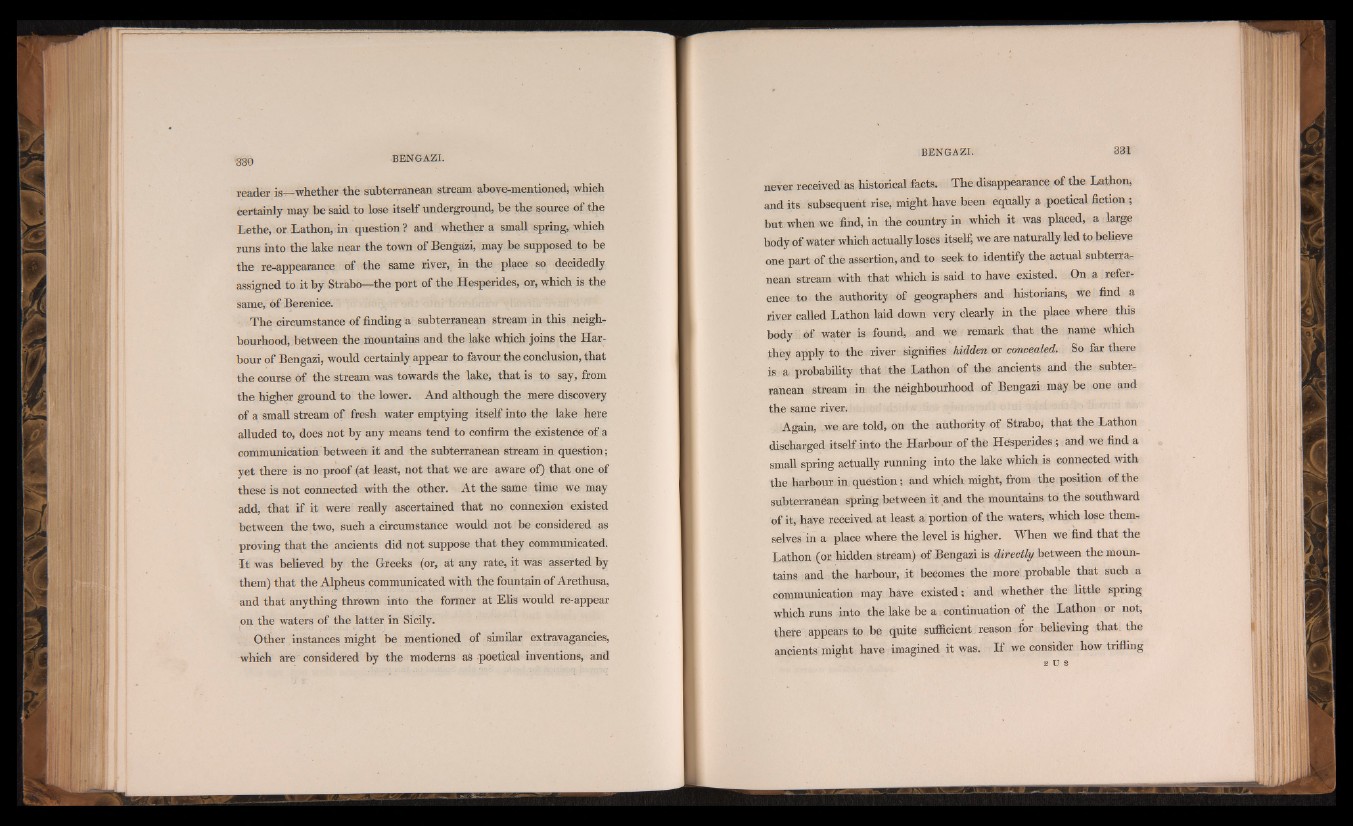
reader is—whether the subterranean stream above-mentioned, which
certainly may he said to lose itself underground, be the source of the
Lethe, or Lathon, in question ? and whether a small spring, which
runs into the lake near the town of Bengazi, may be supposed to be
the re-appearance of the same river, in the place so decidedly
assigned to it by Strabo—the port of the Hesperides, or, which is the
same, of Berenice.
The circumstance of finding a subterranean stream in this neighbourhood,
between the mountains and the lake which joins the Harbour
of Bengazi, would certainly appear to favour the conclusion, that
the course of the stream was towards the lake, that is to say, from
the higher ground to the lower. And although the mere discovery
of a small stream of fresh water emptying itself into the lake here
alluded to, does not by any means tend to confirm the existence of a
communication between it and the subterranean stream in question;
yet there is no proof (at least, not that we are aware of) that one of
these is not connected with the other. At the same time we may
add, that if it were really ascertained that no connexion existed
between the two, such a circumstance would not be considered as
proving that the ancients did not suppose that they communicated.
I t was believed by the Greeks (or, at any rate, it was asserted by
them) that the Alpheus communicated with the fountain of Arethusa,
and that anything thrown into the former at Elis would re-appear
on the waters of the latter in Sicily.
Other instances might be mentioned of similar extravagancies,
which are considered by the modems as poetical inventions, and
never received as historical facts. The disappearance of the Lathon*
and its subsequent rise, might have been equally a poetical fiction ;
but when we find, in the country in which it was placed, a large
body of water which actually loses itself we are naturally led to believe
one part of the assertion, and to seek to identify the actual subterranean
stream with that which is said to have existed. On a reference
to the authority of geographers and historians, we find a
river called Lathon laid down very clearly in the place where this
body of water is found, and we remark that the name which
they apply to the river signifies hidden or concealed. So far there
is a probability that the Lathon of the ancients and the subterranean
stream in the neighbourhood of Bengazi may be one and
the same river.
Again, we are told, on the authority of Strabo, that the Lathon
discharged itself into the Harbour of the Hesperides j and we find a
small spring actually running into the lake which is connected with
the harbour in question; and which might, from the position of the
subterranean spring between it and the mountains to the southward
of it, have received at least a portion of the waters, which lose themselves
in a place where the level is higher. When we find that the
Lathon (or hidden stream) of Bengazi is directly between the mountains
and the harbour, it becomes the more probable that such a
communication may have existed; and whether the little spring
which runs into the lake be a continuation of the Lathon or not,
there appears to be quite sufficient reason for believing that the
ancients might have imagined it was. I f we consider how trifling
a u a